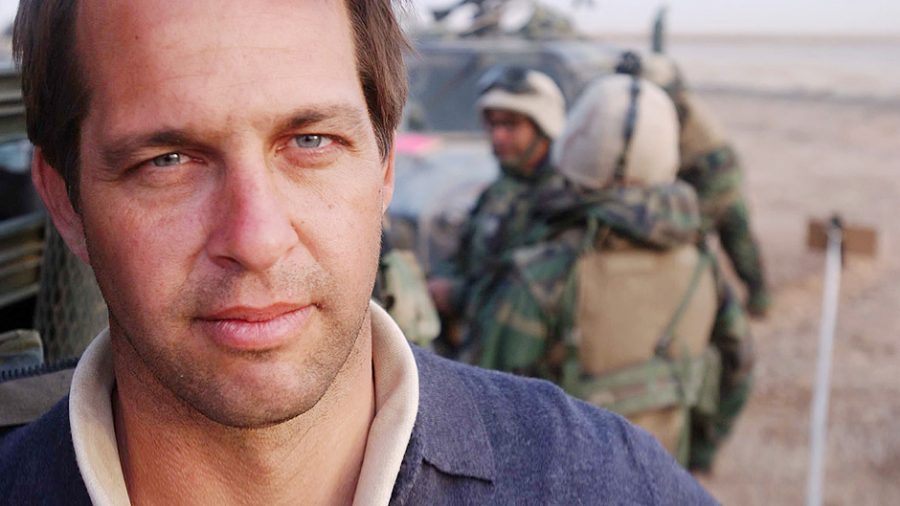Pulitzer Prize winner talks Middle East politics at Weinberg Center for International and Area Studies opening
Pulitzer Prize winner Dexter Filkins has reported from the height of the Iraqi war, and covered Syria’s ruler Bashar al-Assad, amongst other international topics. On Wednesday, he spoke at the Weinberg Center for International and Area Studies’ opening event.
October 24, 2019
Pulitzer Prize-winning journalist Dexter Filkins of the New Yorker on Wednesday reflected on his experience as an international reporter covering the Middle East.
Filkins spoke at the opening ceremony for the new Weinberg College Center for International and Area Studies to a crowd of several hundred attendees. Political science Prof. Ian Hurd said this center has combined all the international-related research, classes and events going on in Weinberg on a college level.
The center will focus on two tracks: undergraduate programs for regional studies will now be bundled under it and there will be further support for interdisciplinary research conducted by Northwestern faculty. Hurd said he sees “the potential for us to expand to other fields in the future.”
Medill Prof. Peter Slevin introduced Filkins and moderated Wednesday’s conversation.
“Filkins was in Afghanistan the last time the Taliban were in charge, was in Iraq when the war was at its worst and was a close friend of murdered Saudi journalist Jamal Khashoggi,” Slevin said.
Because of his experience as a journalist in the Middle East, parts of Filkin’s talk focused particularly on the recent developments in northern Syria.
He showed concern that the ceasefire in Northern Syria was of no substance, simply allowing the Turkish forces to “reload.”
“Wherever the Turks and the Kurds are together, it is a disaster,” said Filkins. “First of all, the Turks are a NATO-trained army, the second-largest army in Europe, and they are really really good at killing people. And they are going to kill the Kurds.”
Not just the Turkish, but also the Syrian Army, which is under the command of dictator Bashar al-Assad, is moving into the area from which U.S. forces retreated, Filkins said.
He also got the rare opportunity to conduct an interview with Assad, which turned out to be less revealing than he expected.
“It was a boring press event of rows of Syrian ministers telling us, ‘Why does the world hate us?’” Filkins said. “Then someone asked me, ‘Do you want to meet the president?’”
He said that while you prepare for a monster, what you get is just your regular ophthalmologist, Assad’s trained profession.
“My first question was ‘What does it feel like to be a war criminal?’ and there was just no reaction,” he said. “Assad is boring.”
Closer to home, Filkins spoke about the inner workings of the Trump administration. Though Filkins wasn’t able to provide many names — due to confidentiality — he said that former Secretary of Defense Jim Mattis “simply ignored” President Donald Trump’s proposal to pull U.S. troops out of South Korea.
The tensions between the Pentagon and the White House are nothing new, he said, and though it may have prevented harm to the U.S. strategy in the region and U.S. allies this time, the Pentagon’s ignoring of orders from the commander in chief is fundamentally worrying.
The Korean case was not unlike the proposal to pull out of Syria, Filkins said, when Trump requested “several options” from the Pentagon to respond to Assad’s chemical weapons attack on his own people in 2017. The Pentagon ended up reporting back with just one option: a ballistic missile strike.
Though Filkins holds a critical opinion on the U.S. involvement in the Middle East, he said he sees no good way out of it either.
“We can’t leave, and we can’t stay,” he said. “We became part of the organism of Iraq, and this organism doesn’t function without us anymore. At some point we will have to leave, and it ain’t going to be pretty.”
Email: [email protected]
Twitter: @linus_at


